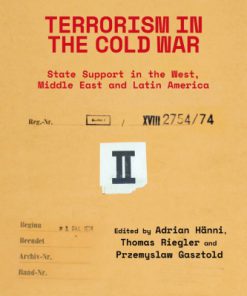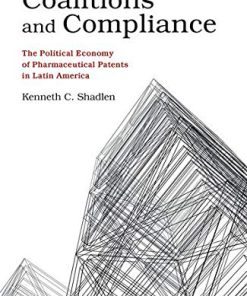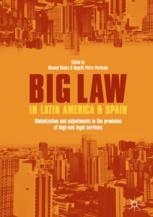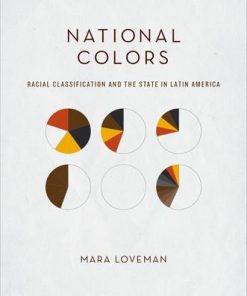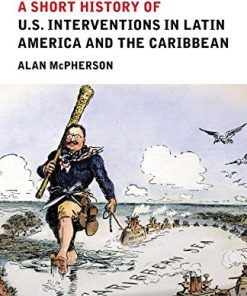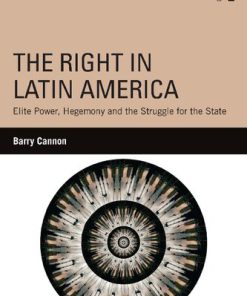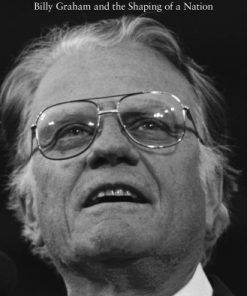State and Nation Making in Latin America and Spain Republics of the Possible 1st edition by Miguel Centeno, Agustin Ferraro 1107302877 9781107302877
$50.00 Original price was: $50.00.$25.00Current price is: $25.00.
State and Nation Making in Latin America and Spain Republics of the Possible 1st edition by Miguel A. Centeno, Agustin E. Ferraro – Ebook PDF Instant Download/DeliveryISBN: 1107302877, 9781107302877
Full download State and Nation Making in Latin America and Spain Republics of the Possible 1st edition after payment.
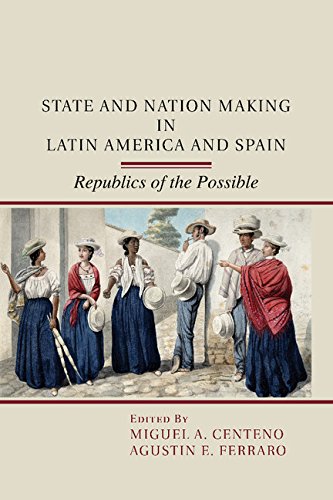
Product details:
ISBN-10 : 1107302877
ISBN-13 : 9781107302877
Author: Miguel A. Centeno, Agustin E. Ferraro
The growth of institutional capacity in the developing world has become a central theme in twenty-first-century social science. Many studies have shown that public institutions are an important determinant of long-run rates of economic growth. This book argues that to understand the difficulties and pitfalls of state building in the contemporary world, it is necessary to analyze previous efforts to create institutional capacity in conflictive contexts. It provides a comprehensive analysis of the process of state and nation building in Latin America and Spain from independence to the 1930s. The book examines how Latin American countries and Spain tried to build modern and efficient state institutions for more than a century – without much success. The Spanish and Latin American experience of the nineteenth century was arguably the first regional stage on which the organizational and political dilemmas that still haunt states were faced. This book provides an unprecedented perspective on the development and contemporary outcome of those state and nation-building projects.
State and Nation Making in Latin America and Spain Republics of the Possible 1st table of contents:
Part I Introduction
1 Republics of the Possible
Introduction
Liberalism and the State Project
Dimensions of State Strength
The Iberian State
Plan of the Book
2 The Construction of National States in Latin America, 1820–1890
Chile
Argentina
Brazil
Mexico
Colombia
Conclusions
3 State Building in Western Europe and the Americas in the Long Nineteenth Century
Introduction
State Building in Europe: The Theoretical Debate, its Results, and its Consequences
The Slow and Discontinuous Emergence of the “Modern” Nation-State in Nineteenth-Century Europe
The Hesitant Way of State and Nation Building in the Americas: From Colonial Times to the Aftermath
Conclusions
Part II Territorial and Economic Power
4 The State and Development under the Brazilian Monarchy, 1822–1889
The Origins and Nature of the State
Implications of the State’s Origin
State Policy and Development
State Impact on Finance
State Impact on Infrastructure and Communication
The State, Slavery’s Abolition, and Political Impasse
Conclusion and Reflections on the Imperial State
5 The Brazilian Federal State in the Old Republic (1889–1930)
The Issue of Federalism in the Late Empire
The Republican Constituent Assembly
The Federal Republic in Practice
Fiscal Development of the Republic
Other Differences between Empire and Republic in Financial and Fiscal Policy
Public Health and Education
Concluding Remarks
6 The Mexican State, Porfirian and Revolutionary, 1876–1930
The State and the Polity
The State and the Economy
7 Nicaragua: The Difficult Creation of a Sovereign State
The Creation of the State: The Elite and the Indians
The Interoceanic Canal and Its Mirages
U.S. Occupation and Impossible Political Stability
Conclusions
8 Friends’ Tax
Introduction
Liberal Regimes and Political Power
Central State and Local Elites
Fiscal Reforms: Old and New Taxes
The Structure of Public Spending
Part III Infrastructural Power
9 Ideological Pragmatism and Nonpartisan Expertise in Nineteenth-Century Chile
Education
The University of Chile and the Spread of Popular Education
Civil Law
Conclusion
Appendix
10 Militarization without Bureaucratization in Central America
Punctuated Export Agricultural Expansion
Increased Revenues as a Permissive Condition for State Development
State Militarization
Punctuated Military Expansion: Guatemala, El Salvador, and Nicaragua
Incremental Military Growth: Honduras and Costa Rica
Coffee Elites and Local Political Power
Professional Civil Service Development
State Positions as Political Spoils
The Costa Rican Exception
Conclusion
11 Between Empleomanía and the Common Good
Expert Bureaucracies during the Conservative Order
The Persistence of política criolla
Schooling for All
Empleomania in the Radical Republic
Summary and Conclusions
12 Elite Preferences, Administrative Institutions, and Educational Development during Peru’s Arist
Lima Learns about the Crisis of Schooling
Census Administration and State Power
The Census as Source: State Weakness and pre-Civilista Education in Peru
Explaining Educational Stagnation in Nineteenth-Century Peru
Lima’s Commitment to Educational Development
Local Control and Educational Stagnation
The Extent and Limits of Educational Development under the Civilistas
The Rise and Erosion of Administrative Centralization
Conclusion: State Building, Centralization, and Local Elite Influence
Part IV Symbolic Power and Legitimacy
13 Liberalism in the Spanish American World, 1808–1825
Introduction
Hispanic Liberalism
Liberalism and Social Reality
Revolutions in the Atlantic World
Final Remarks
14 Visions of the National
Latin American Nations, and Nations in General
The Dark Side of Europe, and Natural Endowments
The Fragility of the Nation as a Community
Landscapes and Politicians, Futures and Threatening “Human Types”
Conclusions
15 Spanish National Identity in the Age of Nationalisms
The Liberal Revolution
Efforts of Intellectual Élites
Obstacles to the Nation-Building Process
Anticlericalism
Imperialism
Pan-Iberism
Pan-Hispanism
1898: The Collapse. Alternative Nationalisms
1900–1936: The Virulent Phase in the Construction of Spanish Nationalism
The Counterrevolution
16 Census Taking and Nation Making in Nineteenth-Century Latin America
Signaling Modern Nationhood
Creating Cohesive Nations
Dealing with Difference
Denying Difference: Nation Making by Exclusion
Absorbing Difference: Nation Making by Assimilation
Conclusion
17 Citizens before the Law
Family Law in Chile
Chile in Comparative Perspective
18 Envisioning the Nation
Mapping the Nation Province by Province
Picturing Provincial Types
Describing Provincial Types
Reconciling Heterogeneity and Homogeneity: A Mestizo Nation
Federalism and Regionalism
Conclusions and Comparisons
Part V Conclusion
19 Paper Leviathans
The Spanish Difference
Paper Leviathans
Historical Legacies
Bibliography
People also search for State and Nation Making in Latin America and Spain Republics of the Possible 1st:
what are the states in latin america
how has latin america influenced the united states
heads of state latin america
nation state in latin america
creation of nation states in latin america
Tags: State, Nation Making, Latin America, Spain Republics, Possible, Miguel Centeno, Agustin Ferraro
You may also like…
Politics & Philosophy
Politics & Philosophy - Government & Politics
Syria The Making and Unmaking of a Refuge State 1st edition by Dawn Chatty 0190876069 9780190876067
Uncategorized
Coalitions and Compliance The Political Economy of Pharmaceutical Patents in Latin America Shadlen
Relationships & Lifestyle - Health - Diseases & Disorders
Politics & Philosophy - Government & Politics
Politics & Philosophy - Anthropology
National Colors Racial Classification and the State in Latin America 1st Edition Mara Loveman
History - American Studies
A Short History of U S Interventions in Latin America and the Caribbean 1st Edition Alan Mcpherson
Politics & Philosophy - Social Sciences
Religion & Spirituality - Christianity
America s pastor Billy Graham and the shaping of a nation Graham




